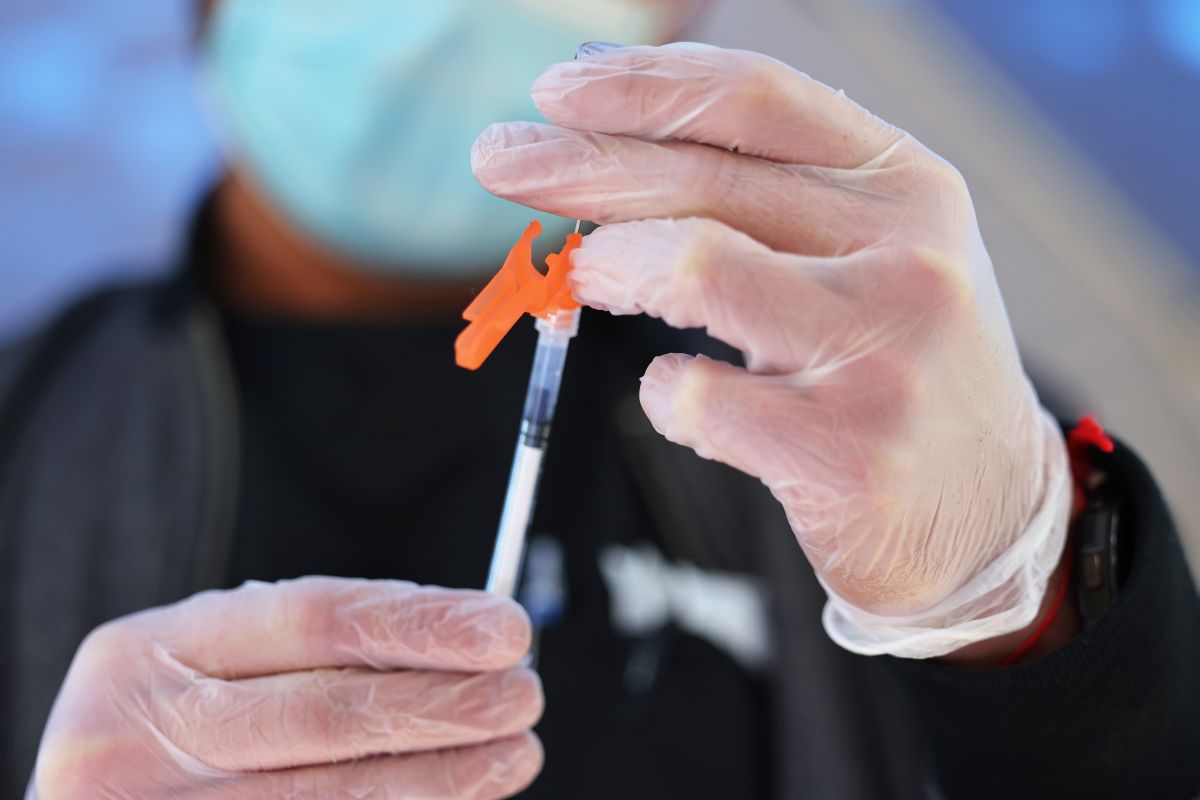What happens if I combine vaccines in the booster dose?


Scientists are currently investigating whether heterologous boosters can work better than two identical doses.
Photo: Michael M. Santiago / Getty Images
The complete vaccination schedule comprises two or more doses of the same substance and it seems imminent that the Food and Drug Administration (FDA) will allow Americans to switch vaccines when they choose a booster dose against COVID- 19.
The authorization, which could be lifted in the next few days, represents the latest development in a long debate about whether the combination vaccine strategy helps protect people from the coronavirus.
Experts consulted by The New York Times, offer answers to the Most common questions regarding the combination of doses delivered by different laboratories in the application of boosters.
What does combining vaccines entail?
Immunizations usually consist of two or more doses of the same vaccine.
Moderna’s vaccine, for example, is given in two identical mRNA injections, four weeks apart.
A double dose provides greater protection against disease than a single injection.
The first dose causes the B cells of the immune system to produce antibodies against a pathogen.
Other immune cells, called T cells, develop the ability to recognize and kill infected cells.
The second injection amplifies that response.
The B and T cells dedicated to fighting the virus multiply in much greater numbers.
They also develop more powerful defenders against the enemy.
Changing from one vaccine to another from a different laboratory for a second dose, a practice known as heterological reinforcement, has been part of the investigations carried out during the pandemic by different research entities.
The Russian Sputnik V vaccine was one of the first licensed heterologous booster vaccines.
Sputnik V uses two different adenoviruses to deliver coronavirus proteins, used by the immune system to fight disease.
The first dose contains Ad5 and the second the adenovirus Ad26.
The advantages of combining vaccines
Scientists are currently investigating whether heterologous boosters can work better than two identical doses..
The creators of the Sputnik V vaccine suspected that the first dose of Ad5 would generate antibodies not only against the coronavirus proteins it administered, but also against Ad5 itself.
A second injection of Ad5 could be cleared by the immune system itself before it begins to fight COVID-19.
Studies of experimental HIV vaccines also suggest that mixing vaccines could create a broader and more powerful response than multiple doses of the same vaccine.
Different types of vaccines strengthen the immune system differently, and switching between two vaccines could complement the fight using the strengths of both prescriptions.
In Europe, when the AstraZeneca vaccine started and young people were found to be at lower risk of developing blood clots, they were offered a second dose of Pfizer-BioNTech.
Both vaccines come from opposite principles, while AstraZeneca’s formulation is based on a chimpanzee adenovirus, Pfizer and BioNTech manufacture their vaccine with mRNA.
When the researchers analyzed the immune response of this combination of principles, they found that they produced more antibodies than two injections of AstraZeneca.
A larger trial with 830 volunteers was conducted in the UK.
The researchers gave two injections of Pfizer-BioNTech to some volunteers, two doses of AstraZeneca to others, two doses from other laboratories to other participants, and a mixture to the rest.
The results yielded no evidence of dangerous side effects in combination vaccine boosters, although they cautioned that their study was too small to detect all possible problems.
The option to mix and match vaccines can expand the global response to COVID-19, in a global environment where doses are scarce.
FDA advisers voted Friday to authorize a second dose of Johnson & Johnson’s vaccine as a booster, to strengthen immunity in Americans who received the first dose.
In Europe, studies of combined boosters conducted earlier in the year suggest that they may provide good protection against COVID-19.
In June, the National Institutes of Health began its own trials, looking at what happens when fully vaccinated people switch to a new booster shot.
There are more than 100 vaccines for COVID-19 in clinical trials. Some may be more effective as “universal boosters” for previously vaccinated people.
Read more
* CDC advisers authorize Moderna and J&J booster and different primary dose boosters of Covid vaccines
* Delta plus: the new coronavirus mutation causing a growing number of infections in the UK
* FDA Authorizes Moderna and Johnson & Johnson Covid-19 Booster Vaccines
.



